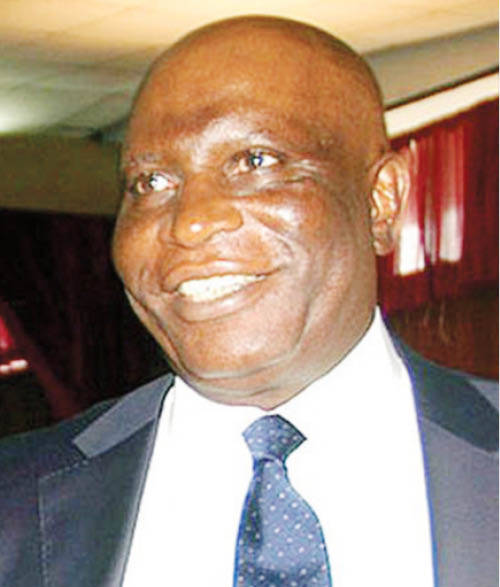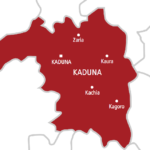
Ambassador George Adesola Oguntade, a retired justice of the Supreme Court, is Nigeria’s High Commissioner to Britain. He presented his Letter of Credence to Queen Elizabeth II in December, 2017. In this interview, he speaks on the role of the judiciary in the current government’s anti-corruption fight and plea bargain, repatriation of money and assets looted in Nigeria and stashed in the UK, among others. Excerpts:
There is the vexed issue of repatriation or return of wealth stolen from Nigeria and stashed in the United Kingdom (UK). How are you pursuing that and what has been the response from the UK Government?
That issue is being pursued through an agency of the Nigerian Government. Our duty here is to support them and be helpful to see that the purpose is realised in a manner beneficial to Nigeria. So, we are doing that.
Many people say the UK is dragging its feet; not moving fast enough to facilitate the return of the stolen money/wealth. What’s your opinion?
Naturally, we (Nigerians) must be very anxious to see that what we want is attained quickly. But the information we have is that the British Government is responding.
Let’s talk about the judiciary and the fight against corruption. There is this feeling that the judiciary has generally been a cog in the wheel of the war against corruption; the process has been so slow as if designed to scuttle the prosecution of the fight against the scourge. What’s your opinion?
I do not think that the legal response has been slow. Ordinarily, the process through which a matter passes before a conclusion is finally reached, involves police intervention, trial before the courts, judgment by the courts, and in some cases, appeals against the judgments of the courts. These are processes that normally take time, and I think that Nigerian courts should be more encouraged. My feeling as a retired judge is that they are responding very well now.
May be some people are a bit impatient…
That may well be the case.
Some people are suggesting the establishment of special courts or even tribunals to handle corruption cases. Would you subscribe to that?
What I will suggest is that the judicial department be expanded, bring in more judges instead of bringing special courts. Judges who sit regularly over cases are bound to know more and to be more compliant with the regular laws than lawyers brought in on emergency to come and handle very technical matters. Don’t forget that after adjudication, there are possibilities that appeals would follow. It’s much better that this judicial process is channeled through the well-known procedure: from the High Court to the Court of Appeal, to the Supreme Court. That is the process I know could be expanded to ensure that cases are more speedily disposed of.
And perhaps what we could do is to make service on the bench easier for judges by providing the needed support like good residences, good assistants in court, good secretaries and good lawyers too who have been properly schooled as to the times we are in, the times of emergency, the time when the country is under stress from negative people who want to ruin the economy.
So, the judiciary should be able to make a stand that the government should give support in that direction. That is to say police (security) protection for judges. And don’t forget that the trial of cases must not begin until the police have finished their investigation. So far, we hear that the police in Nigeria are doing very well. We should encourage them and see that the cases are speedily disposed of. But the problem, if any, is general. You cannot settle for a group as those causing the problem (of delay in corruption cases). It is a general problem in Nigeria.
The action of the government in the recent past in searching some judges’ residences, recovering huge sums of money and valuables and arresting some of them indicated frustration on the part of the government against those judges in the anti-corruption fight?
My view is that that intervention didn’t give much help. I think there were better ways that ought to have been adopted to set the judiciary on the right course. It could well be true that there are corrupt judges. Nobody is averse to arresting and charging them before the court. But I do not think that it helps when you humiliate the judiciary because by doing so, you are weakening the judiciary. That’s not the approach to it.
You can be thorough in your investigation, you can be thorough in monitoring the manner judges face their work and how they adjudicate, and if you find out that any of them is dishonest or corrupt, the better way is to ease them out. But parading them as crooks, as ordinary criminals in court would not help the judiciary. It would only ruin the judiciary and make people think little of the judiciary. And when you get to that stage where the public don’t respect the judiciary, it would be a very sad, sad day.
There have been many high-profile cases involving ex-governors, former ministers and other high class politicians, but with little or no convictions. Why is it difficult to convict people who have been “up there”and amassed public wealth?
In the judiciary, you have very weak judges; in the same judiciary, you have very strong judges who are not afraid to do their work. If you get a situation where cases involving criminals are being carelessly handled, then you have to see the judges concerned. You have to discipline them. But my own impression is that so far, judges in Nigeria have been doing very well. I don’t say that they are all angels. There are some of them who may be corrupt. But my general impression is that most of them are men of integrity and they are doing their work.
Why is it that in Nigeria the accused or suspects; especially the politicians, do not own up to their offences even in the face of overwhelming evidence against them?
It seems to me that in Nigeria, most people who pronounce judgment on the performance of the judiciary are not men properly groomed to understand how the law works. We have a standard that must be met in a trial before you pronounce an accused person guilty.
The ordinary man, when he sees that when a case has been brought to court, he says, “Ah! They’ve caught him. They’ve caught one of them.” But the judiciary is more than that. Adjudication is more than that. Even when you catch a supposed criminal, you have to be able to marshal evidence and meet the technical requirement under the law. It is not just arrest and arraigning before the court.
Each criminal offence has the level it has to attain before you pronounce guilt. When you have not attained that level, presumption is always in favour of the accused person. That is what we call presumption of innocence. You have to establish a crime beyond reasonable doubt before a court can pronounce an accused guilty.
Overwhelming evidence in the judgment of the layman is different from overwhelming evidence in the judgment of a judge. There are technical requirements that ought to be met, pre-laid down by the law, which a judge must look for before you pronounce anybody guilty. You can’t just say, “This man stole money yesterday, therefore, he is guilty”. No! You have to see that the evidence is clear, weighty. That is what is called proof beyond reasonable doubt. That is only when one is guilty, when it is beyond doubt.
But sometimes even after conviction by a competent court and after serving their time, some people still claim innocence. Is this not impunity taken so far?
I think that is humanity in the accused person concerned. There are some when you have tried them and found them guilty, in their conscience they admit guilt and they are penitent. But there are some, even when they committed the crime in question, they still protest because they want to hide under a plea and claim that they are innocent. They don’t admit that “Yes, I committed the crime”. They are not penitent.
What is your opinion on plea bargain, where an accused owns up to his crime/offence, returns (part of) what he amassed illegally and is punished lightly or let off the hook?
It is a civilised way of reducing congestion in our courts. Through plea bargain, you are punished; you get a lighter sentence than what you would have got if you’ve been tried fully. It is a good system to reduce the volume of cases in the courts.
Would you recommend it to the government?
Oh, yes! I would recommend it to the government. It helps. Because the punishment slated for each case has been well stated under the law. If anybody is found guilty or says “I’m guilty” and you know the relevant sentence prescribed by the law, instead of awarding the penalty stated by law, once an accused person says, “I’m guilty”, you can be sympathetic in the punishment you impose because he has boldly admitted his criminality. You punish him; he is tarnished all the same because the punishment in the plea of guilty or being found guilty is to degrade a man from being taken as honest, to one that is a crook. So, whether it is 100 years or 50 years, he has still undergone the punishment.




